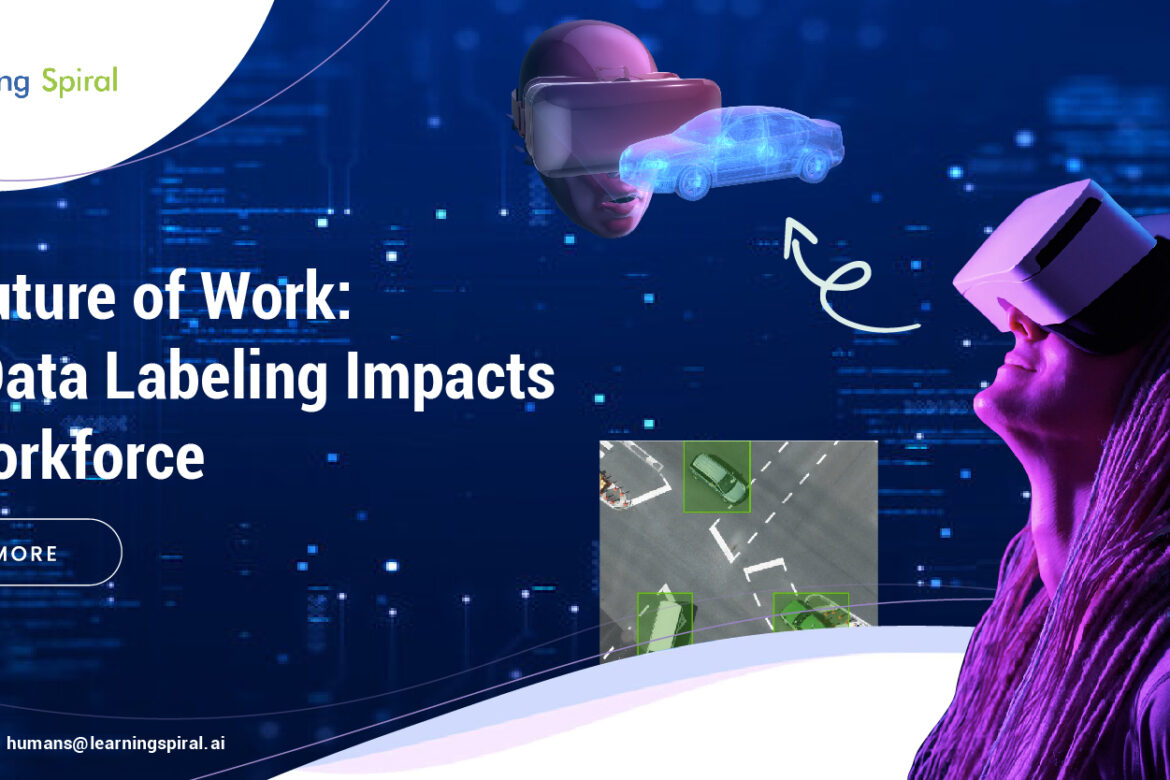The rise of Artificial Intelligence aka AI is rapidly transforming the landscape of work. While automation may displace some jobs, it also creates new opportunities. One crucial yet often unseen aspect of AI development is data labeling – the meticulous process of tagging data with information to train machine learning models.
This seemingly mundane task has a surprisingly significant impact on the future of work, shaping both the creation of new jobs and the evolution of existing ones. Let’s discover this scenario in this article.
The Rise of the Data Labelers
Data labeling forms the foundation of AI development. Algorithms learn from labeled data, and the quality of this data directly influences the accuracy & performance of AI models.
As AI applications become more sophisticated, the demand for high-quality labeled data is skyrocketing. This fuels the growth of data labeling companies, creating a new category of jobs – data labelers.
Wondering what data labelers are? Data labelers are the behind-the-scenes heroes of the AI world. These remote workers meticulously categorize and tag images, text, and other data types according to specific guidelines. While the work can be repetitive, it requires careful attention to detail and the ability to follow complex instructions.
Data labelers often come from diverse backgrounds, offering flexibility and work-from-home opportunities for individuals with varying skill sets.
The Evolving Workforce:
The impact of data labeling extends beyond creating new jobs. Existing jobs are also evolving to incorporate data-driven tasks. For example, customer service representatives may be required to label customer interactions to train chatbots or sentiment analysis tools. Similarly, content creators might be involved in labeling training data for image recognition or natural language processing models.
This integration of data labeling tasks into existing roles highlights the need for upskilling and reskilling initiatives. Workers will need to develop basic data literacy and understand how their work contributes to the development of AI systems.

Challenges and Opportunities:
The rise of data labeling also presents challenges that need to be addressed. One concern is the potential for automation. As AI technologies advance, some data labeling tasks might become automated, potentially impacting the livelihood of data labelers.
However, this automation is likely to be selective, focusing on more standardized and repetitive tasks. Human expertise will remain crucial for complex and nuanced labeling requirements. Additionally, AI could potentially assist human labelers by automating repetitive tasks and offering quality control measures, ultimately increasing efficiency and accuracy.
Another challenge is ensuring fair work practices and ethical treatment of data labelers. Data labeling companies need to provide adequate training, fair compensation, and clear career progression opportunities. Additionally, regulations might be needed to address issues like data privacy and worker rights in the data labeling industry.
The Road Ahead:
The data labeling industry is poised for significant growth in the coming years. As AI continues to evolve, the need for accurate and diverse labeled data will only increase. By recognizing the critical role of data labelers and addressing the associated challenges, we can harness the potential of this new workforce segment to propel AI development in a responsible and inclusive manner.
The future of work will likely see a collaborative approach, where human expertise in data labeling complements the power of AI to build more robust and trustworthy AI systems. By embracing this new data-driven ecosystem, we can create a future where technology empowers workers and fosters innovation across various sectors.




